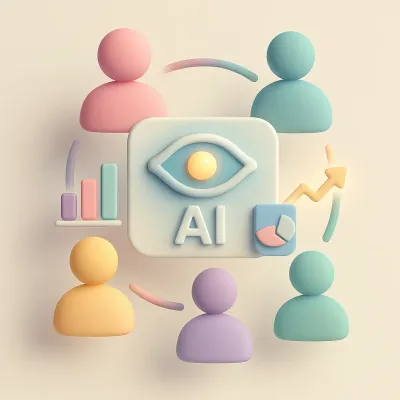Last updated: June 2025
As organizations recognize that culture is their ultimate competitive advantage, the Culture Manager role has evolved from "nice to have" to mission-critical. This guide provides a comprehensive Culture Manager job description for 2025, along with insights into modern alternatives that can operationalize culture at scale.
What is a Culture Manager?
A Culture Manager (sometimes called Chief Culture Officer or Head of Culture) is responsible for defining, implementing, and sustaining organizational culture. They transform company values from wall posters into daily behaviors, ensuring culture drives business performance, employee satisfaction, and competitive advantage.
Culture Manager Job Description Template 2025
Job Title: Culture Manager / Head of Culture
Reports to: Chief People Officer / CEO
Department: People & Culture
Location: [Hybrid/Remote/On-site]
Salary Range: $80,000 - $150,000 (varies by company size and location)
Position Summary
We are seeking an innovative Culture Manager to architect and activate our organizational culture. The ideal candidate will transform our values into lived experiences, build programs that reinforce desired behaviors, and use data to measure and improve cultural health. This role requires a unique blend of strategic thinking, behavioral science understanding, and practical execution.
Key Responsibilities
Culture Strategy & Design (30%)
- Define and evolve company values in partnership with leadership
- Translate values into observable, measurable behaviors
- Design culture operating system including rituals, symbols, and practices
- Create culture playbooks and behavioral guidelines
- Align culture initiatives with business strategy and goals
Culture Activation & Programs (25%)
- Implement recognition programs that reinforce values-based behaviors
- Design onboarding experiences that immerse new hires in culture
- Create culture ambassador programs across the organization
- Develop storytelling initiatives that celebrate culture wins
- Build feedback mechanisms that strengthen cultural norms
Measurement & Analytics (20%)
- Establish culture metrics and KPIs aligned with business outcomes
- Conduct culture assessments and values alignment surveys
- Track behavioral indicators of culture health
- Create culture dashboards for leadership visibility
- Use predictive analytics to identify culture risks and opportunities
Leadership & Manager Development (15%)
- Coach executives on culture leadership and role modeling
- Train managers to be culture carriers within their teams
- Create tools for culture conversations and feedback
- Develop culture competencies for performance reviews
- Build psychological safety practices across teams
Communication & Change Management (10%)
- Craft internal communications that reinforce culture
- Lead culture transformation initiatives
- Manage culture through organizational changes
- Create culture content for multiple channels
- Partner with marketing on employer brand alignment
Required Qualifications
Education & Experience
- Bachelor's degree in Organizational Psychology, Business, Anthropology, or related field
- 5+ years in culture, organizational development, or change management
- Experience with culture transformation in 200+ person organizations
- Track record of measurable culture improvements
Technical Skills
- Proficiency in culture assessment tools and methodologies
- Experience with employee feedback and analytics platforms
- Understanding of behavioral science and habit formation
- Familiarity with change management frameworks
Leadership Competencies
- Systems thinking and organizational design mindset
- Influence without authority across all levels
- Creative problem-solving and innovation
- High emotional intelligence and empathy
- Exceptional storytelling and communication skills
What Success Looks Like
First 30 Days:
- Complete culture audit and stakeholder interviews
- Assess current state vs. desired culture
- Identify culture gaps and quick wins
First 90 Days:
- Launch culture measurement baseline
- Implement first culture reinforcement programs
- Begin manager culture training
First Year:
- Achieve 80%+ values alignment in employee behaviors
- Improve culture scores by 25%+
- Reduce values-misaligned turnover by 30%
- Establish culture as competitive advantage
The Challenge: Why Culture Manager Roles Are Complex
Building great culture isn't just about perks and parties. Modern Culture Managers face unique challenges:
- Scale Challenge: How do you personally impact hundreds or thousands of employees?
- Measurement Difficulty: Culture feels intangible—how do you prove ROI?
- Behavior Change: Changing habits and mindsets takes time and consistency
- Leadership Alignment: Success requires every leader to model values
- Remote/Hybrid Complexity: Building culture without physical proximity
The Hidden Cost of Poor Culture
- Companies with poor culture see 48.4% turnover vs. 13.9% in strong cultures
- Disengaged cultures have 18% lower productivity
- Culture misalignment costs $2,246 per hire in failed placements
- Weak cultures struggle to attract top talent in competitive markets
Evolution: From Culture Planning to Culture Activation
Traditional culture management focuses on planning—creating values, designing programs, hoping for adoption. Modern culture management emphasizes activation—making culture happen through daily behaviors, continuous reinforcement, and real-time measurement.
Traditional vs. Modern Culture Management
Values Definition
- Traditional: Leadership retreat to wordsmith values
- Modern: Collaborative process with behavioral specificity
- Result: Values that employees actually understand and live
Implementation
- Traditional: Launch events and communication campaigns
- Modern: Daily behavioral reinforcement and habit formation
- Result: 94% values-aligned behaviors vs. 20% traditional
Measurement
- Traditional: Annual culture survey with low participation
- Modern: Continuous culture health monitoring
- Result: Real-time insights and proactive interventions
Recognition
- Traditional: Manager-driven, quarterly recognition
- Modern: Peer-to-peer, values-based, daily recognition
- Result: Authentic culture reinforcement at scale
How AI-Powered Platforms Transform Culture Management
Modern organizations are discovering that technology can operationalize culture more effectively than traditional approaches:
Daily Culture Activation
- Automated prompts that reinforce values-based behaviors
- Peer recognition systems tied directly to company values
- Micro-learning moments that build cultural competence
- Real-time feedback on values alignment
Behavioral Analytics
- Track which values are actually being lived vs. just stated
- Identify culture champions and values ambassadors
- Spot teams where culture isn't taking hold
- Predict culture-related turnover risks
Manager Enablement
- Equip every manager to be a culture leader
- Provide conversation guides for culture discussions
- Track manager effectiveness at culture building
- Automated coaching for culture conversations
Scalable Personalization
- Customize culture experiences for different teams
- Adapt to various work styles and preferences
- Support culture across locations and time zones
- Maintain consistency while allowing flexibility
Case Study: Operationalizing Values at Scale
Company: Major Luxury Retail Brand (800+ employees)
Challenge: New values weren't translating into daily behaviors
Solution: Implemented Happily.ai to operationalize culture
Results:
- 80% of peer recognition aligned with values within 2 months
- 94% values alignment by month 4
- Employee satisfaction increased by +50 eNPS
- Turnover reduced by 40%
- Implementation time: 2 weeks vs. 6 months traditional
Key Success Factor: Daily reinforcement through peer recognition made values tangible and rewarding.
Build vs. Buy: Making the Culture Decision
Hire a Traditional Culture Manager When:
- Your organization is under 100 employees
- You're pre-values definition stage
- Culture requires significant transformation
- You have 6-12 months for impact
- Budget exceeds $150,000/year
Leverage AI-Powered Culture Platforms When:
- You need to operationalize existing values
- Scale is important (200+ employees)
- You want measurable culture outcomes
- Speed matters (weeks vs. months)
- ROI and efficiency are priorities
The Optimal Approach: Culture Manager + Technology
The most successful organizations combine human creativity with technological scale:
Human Culture Leader Focuses On:
- Strategic culture design and evolution
- Executive coaching and alignment
- Complex culture challenges
- External culture brand
AI Platform Handles:
- Daily culture activation and reinforcement
- Behavioral measurement and analytics
- Manager enablement at scale
- Peer recognition and connection
ROI Analysis: Traditional vs. Modern Approach
Traditional Culture Manager
- Salary: $100,000/year
- Benefits & overhead: $30,000/year
- Program budget: $50,000/year
- Total: $180,000/year
- Impact: Limited by human bandwidth
AI-Powered Culture Platform (200 employees)
- Platform cost: $19,200/year
- Program budget: $20,000/year
- Total: $49,200/year (first year)
- Impact: Every employee, every day
Savings: $130,800/year (73% cost reduction) Reach: 100% of employees vs. periodic touchpoints
The Future of Culture Management
Culture can't be delegated to one person—it must be activated by everyone. The most successful organizations in 2025 will:
- Make culture daily, not annual
- Measure behaviors, not just sentiment
- Empower every employee as culture carrier
- Use technology to scale human connection
- Focus on outcomes, not activities
Whether through hiring, technology, or hybrid approaches, the goal remains constant: building cultures where people thrive and organizations win.
Key Takeaways for Culture Leaders
- Culture is built through daily behaviors, not annual initiatives
- Technology can operationalize culture at scale
- Measurement must be continuous and behavioral
- Every manager must be equipped as culture leader
- ROI comes from retention, productivity, and performance
The question for every organization: Will you plan culture or activate it?
About Happily.ai
Happily.ai transforms company values into daily behaviors through AI-powered recognition, behavioral reinforcement, and culture analytics. Our platform helps organizations achieve 94% values alignment and improve employee satisfaction by +48 eNPS points. Learn how at happily.ai.









